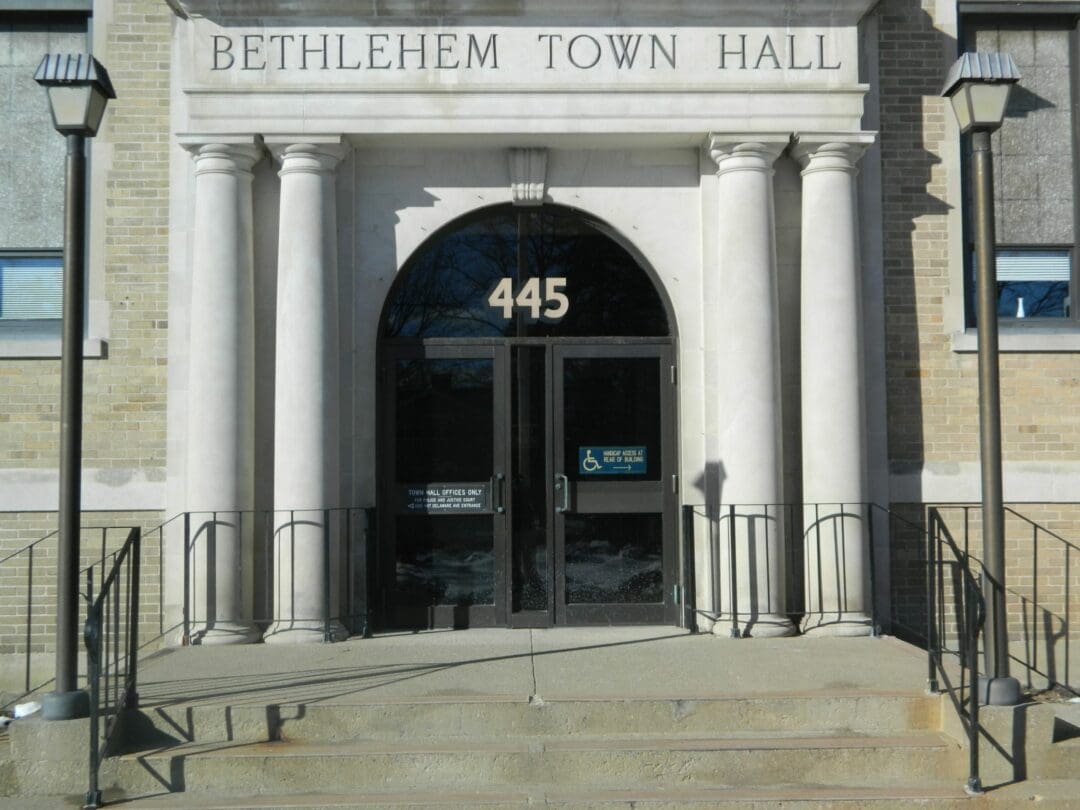#BethlehemNY ##2019Budget #DiegoCagara #SpotlightNews
BETHLEHEM — Comptroller Michael Cohen had presented the town’s 2019 tentative budget back at the Sept. 26 Town Board meeting and while the discussion process will continue until the budget is finally adopted on Nov. 14, it has already raised important issues and information about tax, money distribution, and its impact on local households.
The 2019 town budget would be around $43.1 million, which is 3.1 percent or $1.3 million higher than 2018’s $41.7 million. When divided across the town’s departments, it roughly comprises of $8.3 million to police, $0.9 million to parks and recreation, $8.3 million to highway, $13.8 million to public works, $2.4 million to debt service, and $1.2 million to ambulance and EMS. $7.3 million is to be spread throughout other departments, and another $0.9 million will be shared between parks and highway departments.
 Town Board member James Foster said, “My approach to a budget is that it’s all about priorities as we have finite resources and we need to determine what project to prioritize over others, as well as prioritize our spending ability across different departments. We’d love to do everything that everyone wants to do but that’s just not the reality. From this presentation, we can broadly assess where those priorities lie.”
Town Board member James Foster said, “My approach to a budget is that it’s all about priorities as we have finite resources and we need to determine what project to prioritize over others, as well as prioritize our spending ability across different departments. We’d love to do everything that everyone wants to do but that’s just not the reality. From this presentation, we can broadly assess where those priorities lie.”
He said that some major priorities should include maintaining safety across town by investing in police and relevant emergency services, fostering capital improvements and projects, as well as addressing the Henry Hudson Shoreline Stabilization Project.
In terms of taxpayer impact, an average home — depending on factors like its value and local districts (Fire, School, Water, Sewer) — in 2019 assessed at $260,000 would pay $8,890.07 in total property taxes, $993.91 of which goes into town services. Examples of town services include parks and senior programs, sewer collection, water supply, planning and inspection, and emergency services.
The $993.91 amount for 2019 is an increase of $15.51 on average home from 2018’s $978.40. From $993.91, it’s divided roughly across the General Fund ($227.93), Highway Fund ($444.59), Water Fund ($136.97), Sewer Fund ($101.82) and EMS ($82.60).
2019’s tax rate is 3.82, up 1.58 percent and representing 0.06 more than 2018’s 3.76.
The presentation included a slide that showed how much within a $1 bill, as a metaphor, a resident would pay in taxes. $0.69 would go into the school districts, $0.12 is for the county, $0.04 goes into the library, $0.04 is for the fire districts, and the final $0.11 is given to the town.
“We need those town services but there are people who usually ask, ‘When are you going to lower our taxes?’” said Town Supervisor David VanLuven. “You can’t have town services if you don’t pay taxes that pay people who do those services. I don’t think many people realize how hard our town staff works to provide all those services, for which they only receive those 11 cents from each tax dollar.”
The tax cap is now at 2 percent, a first since 2013 and a rise from 2018’s 1.84 percent. The Town has stayed under the cap since its 2012 inception too.
Regarding property tax levy, 2019 would be $14.5 million, which is up $0.4 million from 2018’s $14.1 million.
Bethlehem’s multiyear planning tool for 2020 and 2021 was also brought up in the presentation, with Bethlehem noted as being the only municipality in the Capital Region that looks beyond the current year.
VanLuven, Foster and Cohen noted that through this analysis they will help to ensure that the budget is balanced responsibly for the future by identifying and preparing for upcoming events. The out-year deficits identified in this plan identify the rebuild of Clapper Road Water Plant, a mandated project by the EPA, which has been projected to cost $15 million.
The Town is still paying, through 2022, the original debt service costs (principal and interest payments) from the building of the plant in the early 1990s and will, through this rebuild, have new debt service costs that will begin in 2020. This information, identified today, will allow the board to work toward balancing the budgets until the overlapping debt ends in 2022.

Overall, people will get a chance to directly offer their input on the town budget as there will be a public hearing and a preliminary budget discussion during the Oct. 24 town board meeting.
While Foster, a Republican, and VanLuven, a Democrat, agreed valuing public input during the town budget discussion process is essential, Foster particularly said that it’s key to find a balance between what the public wants and issues that people don’t typically see — which causes them to think they’re not as important to fund. While residents may want sidewalk improvements and road diets for example which are all more visible issues, they may not be concerned as much with other not-as-visible issues like aging infrastructure, sewer maintenance and investing in the town’s emergency services.
The town’s tentative 2019 budget will be discussed again during the Oct. 10 town board meeting and would be finally adopted during the Nov. 14 town board meeting.
For now, it is available at http://www.townofbethlehem.org/192/2019-Town-Budget. Past years’ budgets are also available at http://ny-bethlehem.civicplus.com/Archive.aspx?AMID=46.



